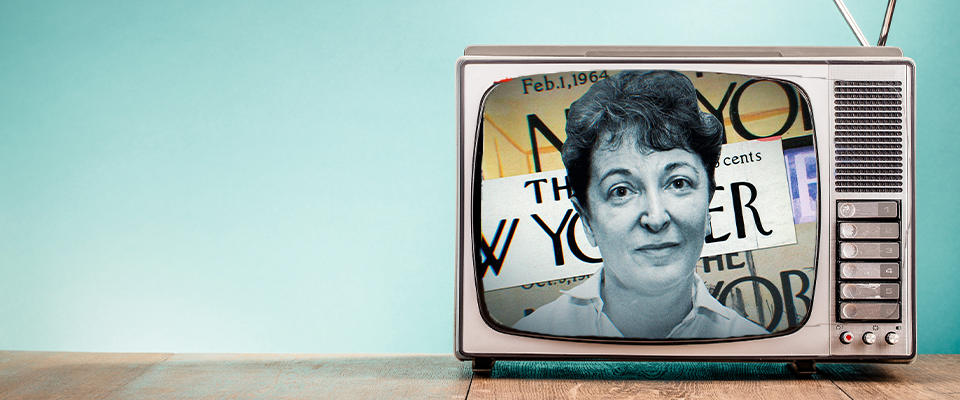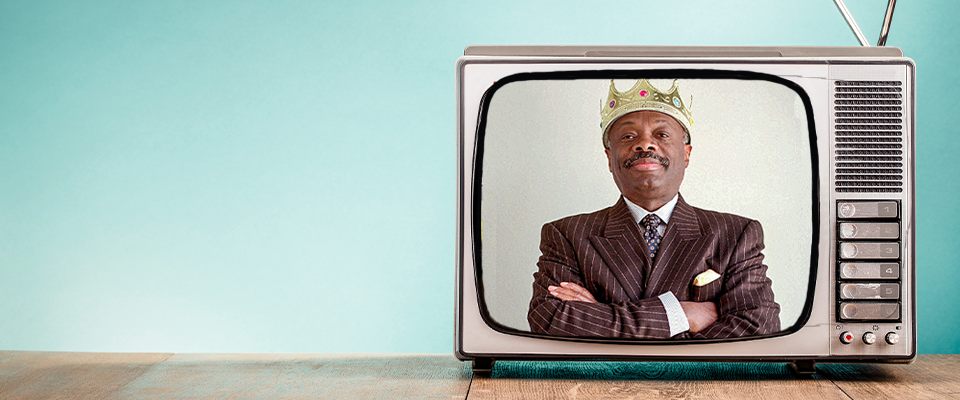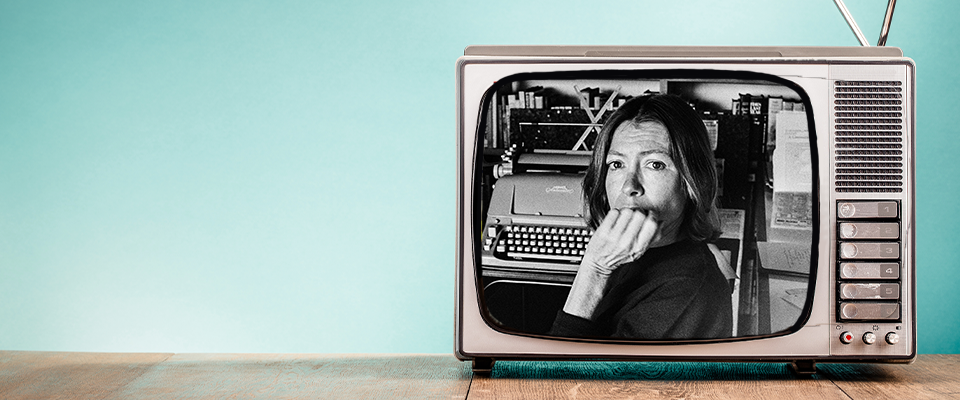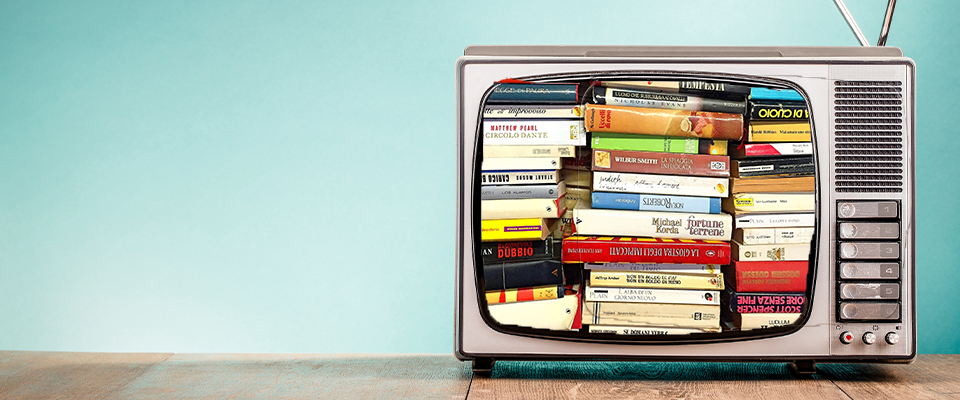Some of our favorite books, films, and podcasts, for your entertainment
Our editors have curated a list of entertainment to indulge in this autumn. Here are their top picks of web series, podcasts, films, and more, all produced by UC Berkeley faculty and alumni.
What She Said: The Art of Pauline Kael
by Rob Garver

Gone are the days when a single review could make or break a film—and Pauline Kael made and broke many. The recent documentary What She Said: The Art of Pauline Kael is a tribute to her legacy, tracing her life from seamstress to Cal dropout and single mother to the contrarian and often controversial New Yorker film critic. Outspoken even in the face of death threats, she brought widespread attention to films like Bonnie and Clyde and Last Tango in Paris. Told through interviews with the likes of Woody Allen and Francis Ford Coppola, the documentary is a kaleidoscope of the films Kael covered and her own words, along with narration by Sarah Jessica Parker. Kael’s daughter, Gina James, says her mother always meant well and truly believed what she did was for everyone else’s good. “This lack of introspection, self-awareness, restraint or hesitation gave Pauline a supreme freedom to speak up, to speak her mind, and to find her honest voice,” said James. “She turned her lack of self-awareness into a triumph.” —Ying Zhao
Podcast: The Edge

While COVID-19 has put much of life on hold, cutting-edge ideas and game-changing technology and research are still coming out of Berkeley every day. This abundance of innovation was the impetus behind California magazine’s new podcast, The Edge. Hosts Laura Smith and Leah Worthington tap the University’s experts to explore everything from internet culture and systemic racism to bioethics and artificial intelligence. In the first episode, an Instagram post from Channing Tatum leads Laura and Leah into the mysterious world of the enigmatic astrology app, The Pattern, and raises a scary question: What access do we unknowingly give away to all those apps on our phones? The second episode proved timely, covering the removal of racist monuments, demeaning sports mascots, and problematic building names. “Looking back on our first few episodes, we realized that a major theme in this podcast is ethics,” said Worthington. “It’s been so rewarding to challenge ourselves—and our listeners—to think through and start conversations about the real-world implications of new technology and our changing culture.” Worthington said she’s very excited about a forthcoming episode about the moral dilemma that gene editing babies poses. “We cover serious topics,” her co-host Smith said, “but I also think we have a lot of fun while we’re at it.” So check out The Edge! The first four episodes are available now on Apple podcasts, Spotify, and streaming from our website. —Editorial Staff
Daily Cal Live

This summer, the student-run Daily Californian launched a weekly speaker series featuring conversations between alumni of the newspaper and various experts in their fields. Streamed every Sunday at 6 p.m. PDT, the hour-long program includes an introduction from current editor-in-chief Sarah Harris and time at the end for questions from the audience. “This is a great opportunity for everyone to get a look at some of the incredible talent that emerges from the Daily Cal,” said Darrin Bell ’97, winner of the 2018 Pulitzer Prize for editorial cartooning and creator of the Candorville and Rudy Park comic strips. Recent guests have included restaurateur Alice Waters ’67 and New Yorker journalist Margaret Talbot ’84. Click here to see who’s coming next. —Leah Worthington
River City Drumbeat
by Anne Flatté ’90

In the West End neighborhood of Louisville, Kentucky, a group of kids gathers inside a packed gymnasium to build their first drum. Their teacher, Edward “Nardie” White, pulls cowhide over circular tubes until it’s taut while the young percussionists drill it into place. They paint colorful designs on the sides of their instruments. “We let children make something productive,” says White, and to remind themselves: “I am worth something.” River City Drumbeat, the latest documentary by award-winning filmmaker Anne Flatté, tells Nardie’s story as he leads Louisville’s River City Drum Corps. Set to the rich sounds of Pan-African-inspired drumline, River City Drumbeat follows graduating high school seniors Jailen, Imani, and Emily as they navigate the challenges of adolescence in a neighborhood plagued by generations of inequality, class divide, and racism. —Steven Rascón
New BAMPFA director

The Berkeley Art Museum and Pacific Film Archive (BAMPFA) has begun a new era. On Aug. 1, critically acclaimed art curator Julie Rodrigues Widholm—who formerly led Chicago’s DePaul Art Museum—was appointed director of Cal’s visual arts center, replacing Lawrence Rinder who directed from 2008 to 2020. “I think it’s a new frontier,” Rodrigues Widholm told the San Francisco Chronicle Datebook section about her appointment during the COVID-19 pandemic. “I’m kind of excited to consider how we can engage with audiences who can’t physically come to the museum, which connects to questions about accessibility in general.” Going forward, patrons can expect collections of multicultural, inclusive works produced by artists of color and other marginalized groups, which is Rodrigues Widholm’s signature. —Brooke Kottmann
Boys State
By Jesse Moss ’93

In 2008, producer/director Jesse Moss made an award-winning documentary called Full Battle Rattle about a mock Iraqi village in the Mojave Desert, complete with role-playing Iraqi “villagers.” It was used by the U.S. Army to train troops heading for the Middle East. Now Moss, together with his wife and collaborator, Amanda McBaine, is back with Boys State, winner of the U.S. Grand Jury Prize for Documentary at the 2020 Sundance Film Festival. The new film is a deep dive into another mock exercise: An annual program sponsored by the American Legion in which a thousand Texas high school seniors (males only—although there’s a Girls State program as well) converge on Austin to build a state government. At the end of the week, only one will become governor: either the Nationalist party candidate or the Federalist one. The stakes may seem low, but not to these kids. As ambitions rise to the surface and the testosterone flows, so do lies, accusations, demands for impeachment, and cries of secession. Is this what democracy looks like? Afraid so. Rolling Stone called Boys State “exhilarating,” and indeed it’s hard to imagine a more entertaining and soulful film about masculinity and American politics. Available to stream on Apple TV+. —Pat Joseph
Home Cooking
co-hosted by Samin Nosrat ’01

The James Beard Award-winning creator of Salt, Fat, Acid, Heat, Samin Nosrat knows what you should do with those beans you’ve been squirreling away since you first got your shelter-in-place orders. Nosrat originally launched her Home Cooking podcast in March as a short-term project with a limited number of episodes for listeners holed up at home, but as the pandemic goes on, so does the show. Most of the episodes revolve around a particular ordinary household ingredient, such as flour (or the lack thereof) and chicken. Nosrat shows that even the plainest ingredients in your pantry can be transformed into a lively meal. The banter and energy between Nosrat and her co-host, L.A. musician and podcaster Hrishikesh Hirway, are the show’s highlight. In their hands, even beets are fun. But Home Cooking takes on serious matters, too. After the George Floyd protests this spring and summer, Nosrat and Hirway responded with an episode titled “White fra-chilli-ty,” proving that food can offer comfort—and an education—for every season. —Laura Smith
The Force of Nonviolence
by Judith Butler

We live in a violent society. Does that mean violence is inevitable? Celebrated philosopher Judith Butler says: maybe not. Amidst ongoing, nationwide clashes between law enforcement and civilians, Butler’s new book imagines a radical return to nonviolent resistance. This doesn’t mean that we should all become weak and passive bystanders to injustice; on the contrary, Butler argues, nodding to the kind of nonviolent resistance championed by Mahatma Gandhi and Martin Luther King Jr., nonviolence “very often it is an expression of rage, indignation, and aggression.” Witness Black Lives Matter protesters kneeling in solidarity and mothers in Portland forming a defiant human chain. Butler’s vision demands a reckoning with our beliefs about violence and nonviolence—starting with the idea of self-defense. Whose selves are worth defending? “Once we see that certain selves are considered worth defending while others are not,” Butler writes, “is there not a problem of inequality that follows from the justification of violence in the service of self-defense?” Butler argues for an expansion of the self to include not just other cultures and races, but other species and the environment. Perhaps, in recognizing the bonds that link us all we will be able to accept a “global interdependency of the kind that embodies ideals of economic, social, and political freedom and equality.” —Leah Worthington
From the Fall 2020 issue of California.





















